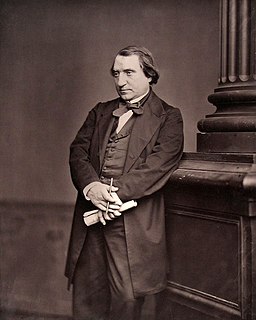A Quote by Richard Dawkins
The earliest books in the New Testament to be written were the Epistles, not the Gospels. It's almost as though Saint Paul and others who wrote the Epistles weren't that interested in whether Jesus was real.
Related Quotes
The Church was resolved to have a New Testament, and as, after the lapse of more than three hundred years, no handwriting could be proved or disproved, the Church, which like former impostors had then gotten possession of the State, had everything its own way. It invented creeds, such as that called the Apostle's Creed, the Nicean Creed, the Athanasian Creed, and out of the loads of rubbish that were presented it voted four to be Gospels, and others to be Epistles, as we now find them arranged.
The Old Testament records the preparation for the coming of the Messiah. The Gospels record the coming of the Messiah, Jesus Christ our Lord. The book of Acts records the propagation of the gospel (the good news) concerning Jesus Christ. The Epistles (letters) explain the gospel and its implications for our lives. The book of Revelation anticipates and describes the second coming of Jesus Christ and the establishment of His eternal kingdom. From beginning to end, the Bible glorifies Jesus Christ and centers on Him. Its Christ-centeredness is one of its wonderful features.
One of my great experiences in life was to be interviewed on a late-night talk show by a guy named Tom Snyder. He was interviewing me on a book I had written on the New Testament of the Bible called Rescuing the Bible from Fundamentalism, and we talked about the dating of the books of the New Testament, and I said, "Well, the consensus is that the gospels were written some forty to seventy years after the crucifixion." And he stopped me and said, "Wait a minute, Bishop, that means they couldn't have been written by eyewitnesses."
The study of everything that stands connected with the death of Christ, whether it be in the types of the ceremonial law, the predictions of the prophets, the narratives of the gospels, the doctrines of the epistles, or the sublime vision of the Apocalypse, this is the food of the soul, the manna from heaven, the bread of life. This is "meat indeed" and "drink indeed."
One would naturally expect that the Lord Jesus Christ would be sufficiently important to receive ample notice in the literature of his time, and that extensive biographical material would be available. He was observed by multitudes of people, and his own followers numbered into the hundreds (1 Cor. 15:6), whose witness was still living in the middle of the first century. As a matter of fact, the amount of information concerning him is comparatively meager. Aside from the four Gospels, and a few scattered allusions in the epistles, contemporary history is almost silent concerning him.





































